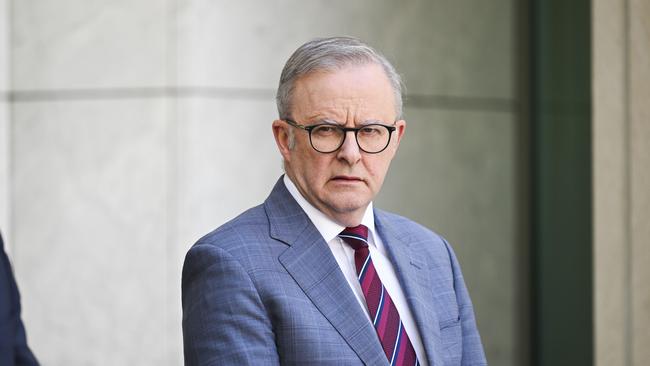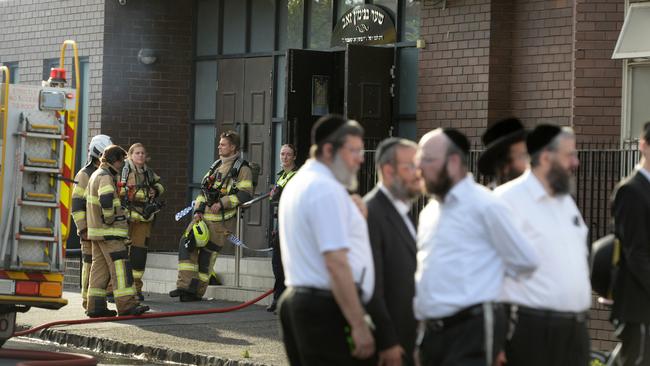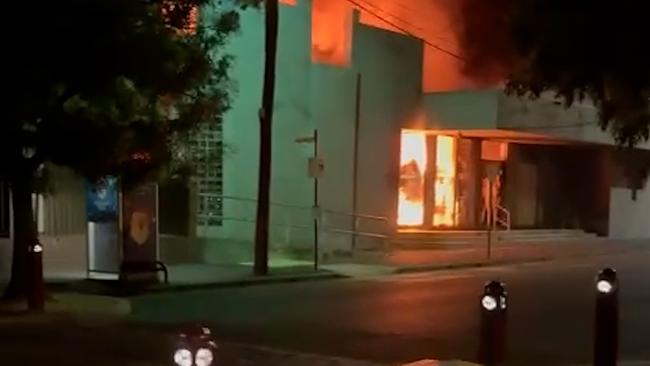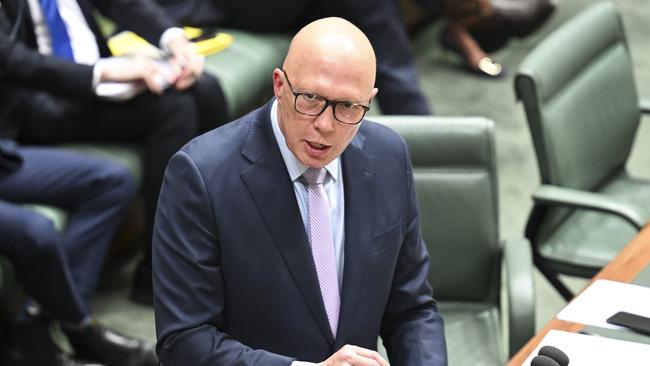Anthony Albanese is now witnessing the consequences of his failure to protect Australian Jews


Whether he accepts the assertion or not, the Prime Minister is now in the hot seat on an issue that has escalated beyond the foreign conflict to become one of broader domestic community safety.
Until Friday, the Prime Minister’s language on the convulsions between the Jewish and pro-Palestinian communities has been mealy mouthed at best since the October 9 Hamas terrorist attack on Israel.

Yet his foreign policy posture towards Israel has not been. It has become increasingly hostile.
The timing of the arson attack on a synagogue in Melbourne was profound, having occurred within hours of Israel’s warning to Australia that its reversal of a long-held UN position on Palestinian status would result in increased violence against Jews.
The Israeli government warned that “awarding savages” would invite terrorism.
This is precisely what occurred at 4.10am on Friday morning.
The Prime Minister doesn’t need to wait for ASIO or police to call it for what it is: an act of domestic terrorism.
By any definition, it is precisely this.
It is now impossible to separate the foreign from the domestic, from what is playing out in the suburban streets of Melbourne and Sydney.
It is the product of an environment of permissive hatred that has been allowed to advance unchecked and without penalty.

Albanese until now has been able to play the cynical game, convinced that the Middle-East conflict in and of itself is not an election issue that is likely to impact seats beyond the Labor electorates where independent Muslim candidates campaign against Labor.
Most Australians, while appalled by what is occurring, still see this as a foreign conflict that has little to do with them. Albanese has been right on this, although wrong on the corrosive effect it may have on the perception of strength of leadership.
And it is the Prime Minister’s management of the issue that has broader consequences.
The risk now for Labor is whether Friday morning’s arson attack is the tipping point for when this now becomes part of a broader consciousness that feeds into community concerns about crime and public safety.

The initial reaction suggests it could be, which should be of deep concern for the government.
Until now, this conflict was largely irrelevant to 80 per cent of Australians.
Bring it into their backyards and suddenly the game changes.
Albanese may get some credit for coming out strongly in his condemnation of the attack on Friday morning.
Peter Dutton’s allegation is that it is too little too late.
Labor has yet to accept that what it says internationally has an impact at home.
The political danger for Albanese now is that this latest incident will resonate more broadly in a community that until now has not been connected to the issue.
Many may now come to view this as an issue that has got out of hand, under a government that has failed to address it.



Anthony Albanese is now witnessing the consequences of his own government’s failure to protect the Jewish community from acts of violent anti-Semitism amid its foreign policy pivot on Israel.